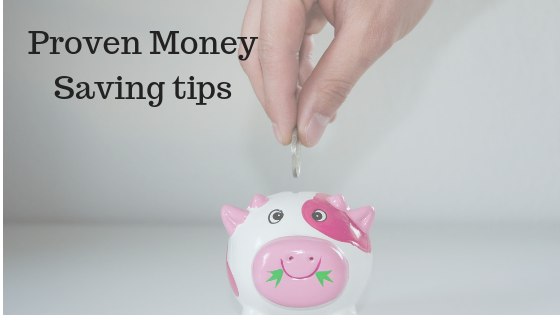
Frugality isn’t taught in schools, but it is a lesson that’s necessary in order to live a financially stable life. It doesn’t take long to end up learning the hard way when your checking account balance comes up short and a pile of bills are due. In today’s economy, it’s more important than ever to introduce at least a modicum of frugality into your everyday life.
This message is uncommon, however. A large amount of the mail we receive is credit card offers, personal loan offers, and zero-down car loan advertisements. The Keynesian mantra is that spending drives an economy. This couldn’t be further from the truth.
Leveraged investments that create income can be a powerful tool to build wealth, but debt for the sake of consumption is never going to be anything besides a financial drain. It’s best to learn these lessons young and avoid debt mistakes altogether. If you’re already hurting, it’s better late than never to get started now.
The greater percentage of your income you can save, the sooner you’ll reach financial freedom. Conventional wisdom is to save 5-10% of your income for retirement. Why not 20% or 50% or even more? Start with an initial goal, even a small one, and vow to increase it every month or at least every year. Living on 1% less per month is a worthy goal when you’re starting out. By year’s end, you’ll be saving 12% of your income. With 2-3 years you could be saving over ⅓ of what you earn. At this rate, financial freedom isn’t far away.
First, tabulate your current expenses. Start with major expenses with your mortgage, car payment, phone plan, and utilities. Continue until you’ve included everything down to one-off sodas, coffee, and snacks.
This exercise will be especially worth it the more painful it is. Many people don’t even realize that they’re spending far more than they earn each month! Carrying a credit card balance or taking $25 here and $50 there out of savings can easily paper over the cracks of a broken budget. This won’t last forever though.
Look for the fat in your budget that needs to be trimmed:
1. Do you buy a latte every day on the way to work?
With a dollar in the tip jar, this habit could be costing you $30 a week or more. Start by trimming your habit to only once or twice per week with a goal of making it a once-per-month treat. Your pocketbook and your waistline will thank you!
2. Do you smoke?
Kick the habit immediately. Not only is it killing your lungs; it’s costing you $200/month or more depending on your state and local tobacco taxes.
3. Do you eat lunch out every day at work?
Even a few items off the Dollar Menu at a typical fast food joint will add up to $4-5 per day. A “value” meal is easily $6-7 these days. Want to eat healthy? Figure $10-15 per meal for a healthier choice.
• Most people lay around on Sunday afternoons. Get in the habit of planning out meals for the week and make enough each night at dinner to have leftovers the next day. If you’re more adventurous, cook a recipe or two on Sunday to portion out and refrigerate or freeze for the week.
4. Cook your own fast food.
‘Convenience food’ is the costliest. Packaged meals cost several dollars per serving and aren’t good for you. Learning to cook is one of the greatest savings tools you can utilize.
- It’s amazing how much money you can save by learning how to cook your own food! The general rule is that for the same quantity of food, a pre-packaged meal costs twice to three times as much.
5. Drink water.
Soft drinks and alcohol have the largest margins at restaurants and bars. A glass of water is free from the tap. Make soda a periodic treat rather than a daily staple.
6. Use coupons.
There are entire books and websites devoted to couponing. Read up and see what you can do.
7. Follow the “wait 30 days rule”.
Wait for 30 days before buying anything that will cost you $50 or more. Think about whether you really need that new item for a while and the feeling will probably go away. Instant gratification is a budget killer every time.
Being frugal and learning how to save money takes patience and practice, but the reward of frugal habits is well worth it. With the money you have saved, you could go on a vacation, get out of debt, or upgrade your car.
Just making a few small changes each week will form new habits, and before long, you’ll have a new way of living and extra money to spare.




No comments yet.